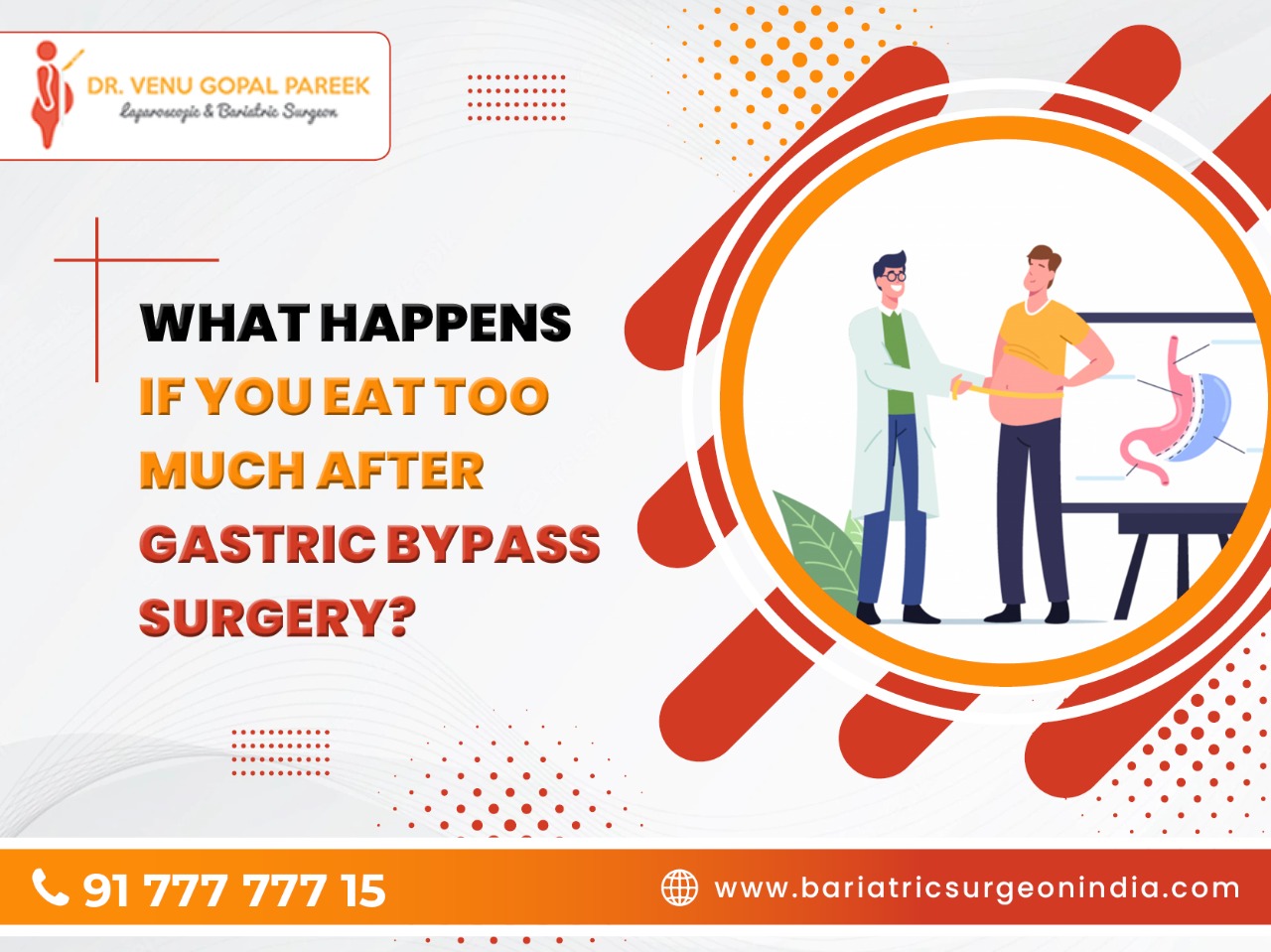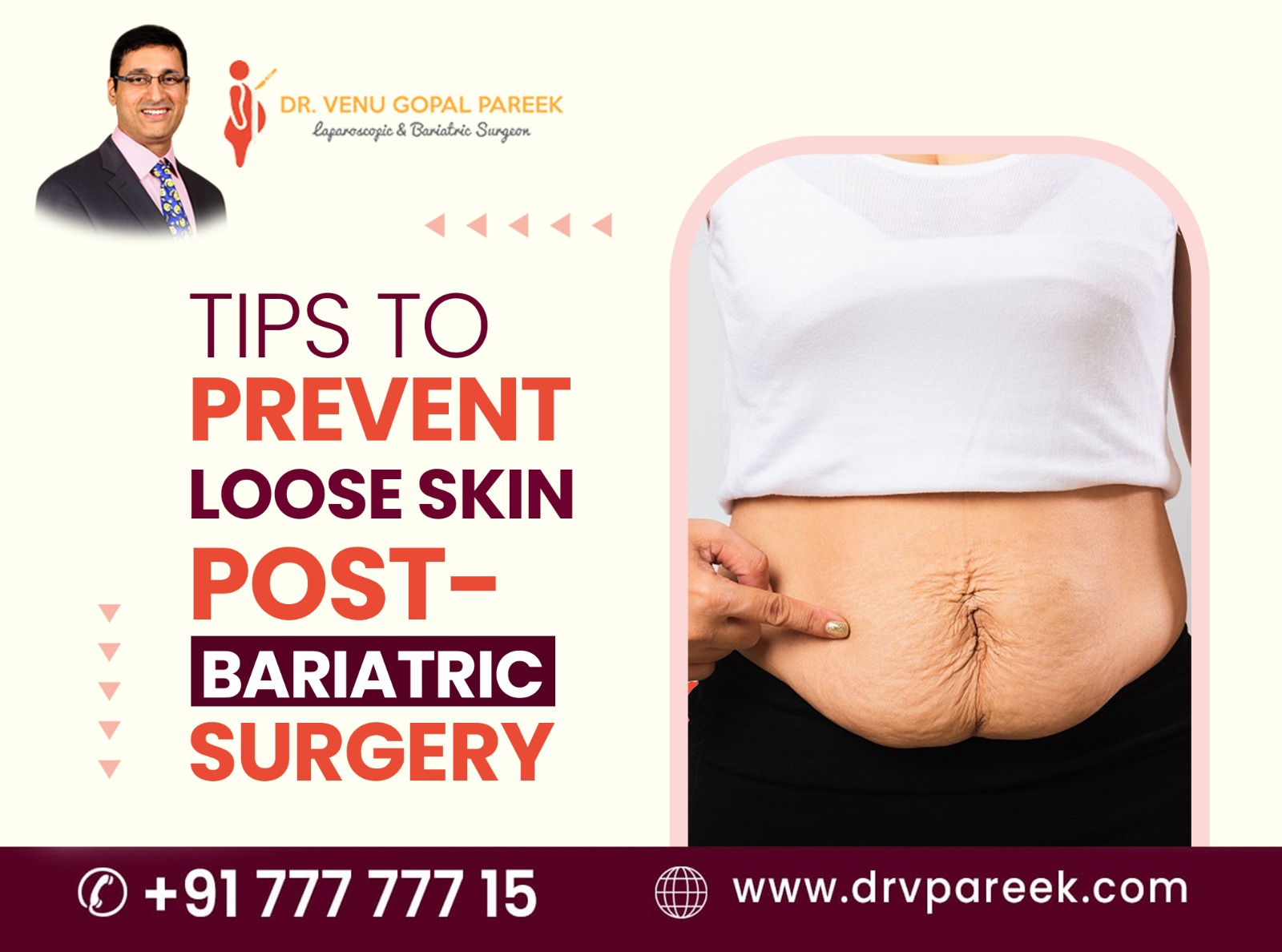
What Happens If You Eat Too Much After Gastric Bypass Surgery?
A gastric bypass procedure leaves your stomach with less capacity to hold food, and the small intestine is rerouted so that less food is digested. You will notice a significant change in your digestive system after this procedure. In spite of this, the procedure is fairly safe and less prone to complications.
However, gastric bypass surgery does have some risks. Consuming too much food at once, like before, can lead to painful consequences.
If someone consumes more food after a gastric bypass, what happens?
Is it possible to eat more after undergoing gastric surgery? Let’s find out.
What Happens If You Overeat After Gastric Bypass
The design of the surgery itself makes it harder to overeat. After the procedure, it is very hard to consume a large volume of food. Moreover, it is very difficult for the consumed food to be absorbed and converted into fat in the body. Overeating may result in:
Nausea, abdominal pain & vomiting
These are the adverse effects of overeating after gastric bypass. Patients may experience these symptoms at any time following surgery, although they are more prevalent in the first few months, especially during the recovery. Consuming foods high in fat, spicy foods, foods that are hard to digest, and drinking carbonated drinks also result in nausea, abdominal pain, and vomiting.
The recovery may be accompanied by mild pain in the abdominal area but should not be severe. In case of severe stomach pain, persistent nausea, or repeated vomiting, contact your healthcare provider and get proper treatment.
Dumping syndrome
Dumping syndrome is defined as the rapid passage of food into your intestine after eating.
Sometimes undigested food might also go through the intestine. Acute symptoms of dumping syndrome include pain in the abdominal area, nausea, diarrhea, sweating, and dizzy feeling. In some rare instances, patients experience a sudden drop in their blood sugar level after 2-3 hours of eating. In such cases, consulting your surgeon immediately is very important.
Heartburn and gastroesophageal reflux disease (GERD)
Overeating can cause acid refluxes, i.e., stomach acid goes back into the esophagus, which is defined as heartburn. The occasional heartburn is not a big concern to worry about, but acid reflux that occurs frequently can wear down the esophageal lining. If not treated properly, it leads to gastroesophageal reflux disease (GERD), and it is a serious problem.
Tips for Avoiding Overeating After Gastric Bypass
After having gastric bypass surgery, your stomach will be smaller, and your intestines will have a different entrance to your food. After surgery, you should stay on track with your weight-loss goals by getting appropriate nutrition. The following tips are likely to be recommended by your doctor:
Eat your food slowly and drink liquids accordingly: Dumping syndrome can be avoided if you consume your food slowly for a minimum of 30 min and have a cup of water after 30 to 60 minutes of having food. It is recommended to d Drink before or after 30 minutes of each meal.
Keep your meal small:
- Eat a few smaller meals throughout the day.
- Start taking 6 smaller meals every day, then reduce it to 4 meals a day, and finally follow your regular diet.
- Make sure every meal consists of only half-cup to one cup of food.
Drink liquids: In order to prevent dehydration, you should consume 8 cups (1.9 liters) of fluids each day. When you drink too much fluid before or during a meal, you may feel overstuffed and not be able to eat enough nutrient-rich foods.
Chew food thoroughly: The new passage created in the surgery connecting your stomach and small intestine is very narrow, which may obstruct larger pieces of food. You may experience nausea, vomiting, and abdominal pain if you have blockages in your stomach. So chew food until it becomes soft before swallowing. Eat plenty of high-protein foods, and make sure you eat them first before eating other foods.
Sugar and fat-rich foods should be avoided.
Supplement your diet with recommended vitamins and minerals. The nutrients in your food will not be able to absorb properly after surgery. The best course of action is to consume multivitamin supplements on a daily basis.
For more detailed information on diet tips following gastric bypass surgery, consult Dr. V Pareek, one of the Best Bariatric Surgeon in Hyderabad. He has more than two decades of experience in performing various kinds of bariatric surgeries with a high success rate.







